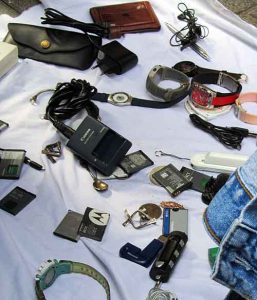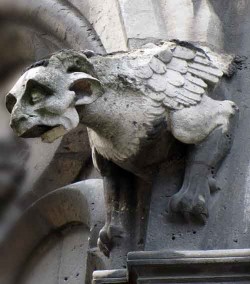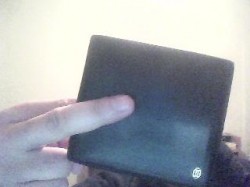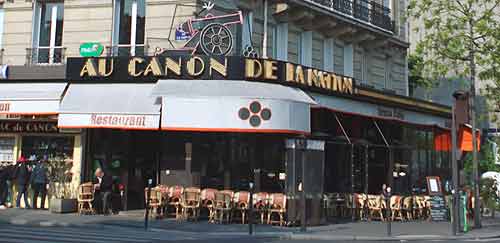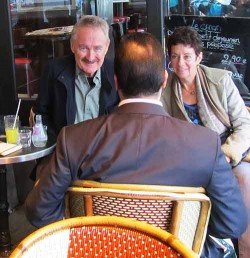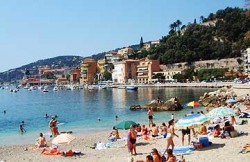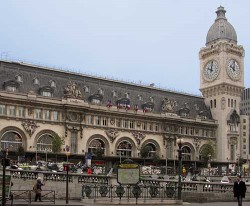
We started early at Gare de Lyon in Paris, on the hunt for a particular thief. He’s known for a specific M.O., and for his violent nature.
He stands in line at train station ticket machines and watches as passengers purchase tickets with credit cards. Most credit cards issued outside of the U.S. require a PIN code, which must be entered on a keypad. The large keypads on the train station ticket machines make it easy for anyone interested to learn a cardholder’s PIN. Rarely do people bother to hide the numbers they enter.
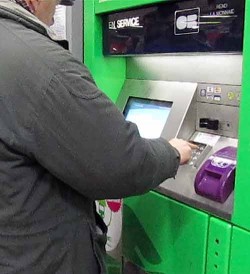
The man we sought takes note of the PIN—he shoulder-surfs—and watches where the credit card is put away. Then he follows the mark. He has any number of methods of stealing the credit card; the train and Metro station is full of opportunities-in-the-making.
He could let a partner stall the mark in a turnstile, on an escalator, or getting onto a train. But that would mean splitting the proceeds of the risky business with the partner. Our man prefers to work alone.

His favored victim is a woman. Why? It’s infinitely easier to steal from a handbag rather than a pocket. A purse has no nerve-endings. It’s slung on the woman’s back, it’s gaping open, it has an easy zipper, or a flap. The woman is busy, distracted, she has luggage, or a child. She’s in high heels, she’s “minding the gap.”
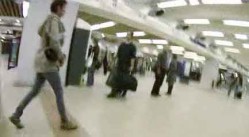
We spent hours speeding through Gare de Lyon, fastwalking up and down stairs and escalators, through the train station and Metro station, past numerous banks of ticket machines, around and around. Who said thiefhunting is easy work?
Our irregular behavior might have raised the suspicion of station surveillance officers, had the police not been aware of our activities. But Bob Arno’s reputation precedes him and the anti-bandit detail of the Paris police force tolerated our pursuit.
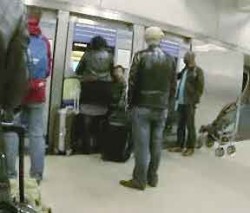
When we first laid eyes on our prey, he was checking out the people waiting to buy tickets at the machines. He sussed them out quickly; the same way Bob and I look for thieves in a crowd. He turned on his heel and strode off at high speed, as if late for a train.
I was struck by his choice of clothing. He wore a shiny black jacket with wide white stripes down the arms, and a beige beret; both of which made him easy to pick out of a crowd. Bob and I, trailing him from a moderate distance, often lost him in the mobs of moving people. But he always surfaced again, easy to spot in his signature style. Had he worn a dull shirt, or a black sport coat like Pierre, like a good percentage of the businessmen hurrying through the terminal, we’d have lost him.
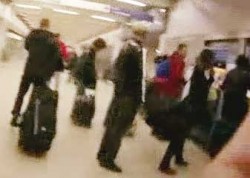
Bob and I split up for the chase. We made wide arcs around the thief, we got ahead of him, we hung back, we lingered behind columns and vending machines. I felt conspicuous in my beige coat. Bob was a striking beanstalk, a full head above the rest of the crowd. The guy had to notice us… any second.
I had two video cameras on me, but neither was my trusty Sony, the one I can work upside-down and blindfolded and shoot from the hip. I didn’t turn them on.
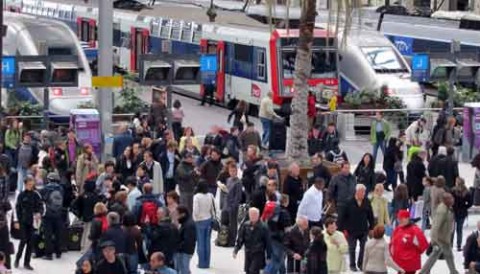
The man was short but his bereted head rode among the crowd’s like a piece of litter on a choppy sea. He darted among the throng in a manner that Bob and I soon found predictable. He dashed from one queue to the next, scanned the potential marks, moved on. He was focused.
But he had tunnel vision. After all this time, he was oblivious to us. Bob and I got closer and more overt, closing in from opposite sides. I fiddled with my camera, afraid to look at its switches for fear of losing the bobbing beige beret.
But I did look at the camera. And when I looked up again, Bob was face to face with the shoulder-surfing pickpocket, and I knew it was all over. In a moment, he’d flee.
Or not… Part 2


